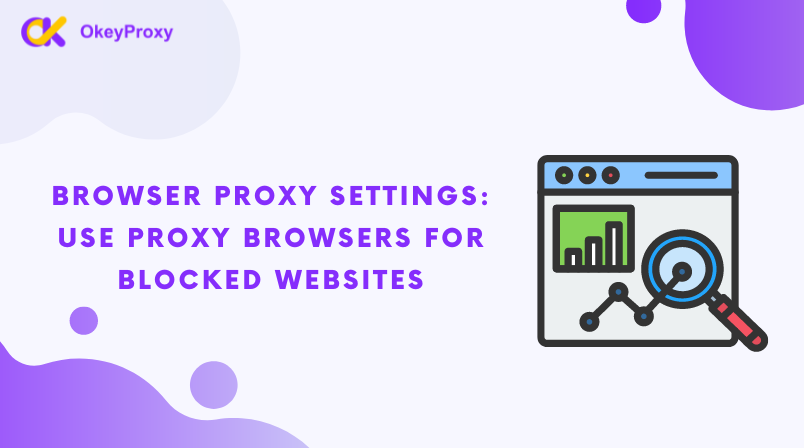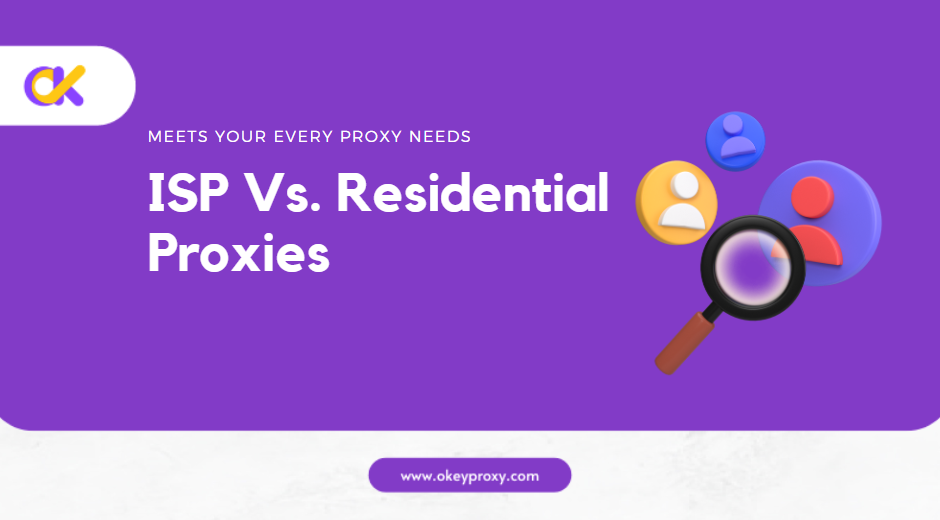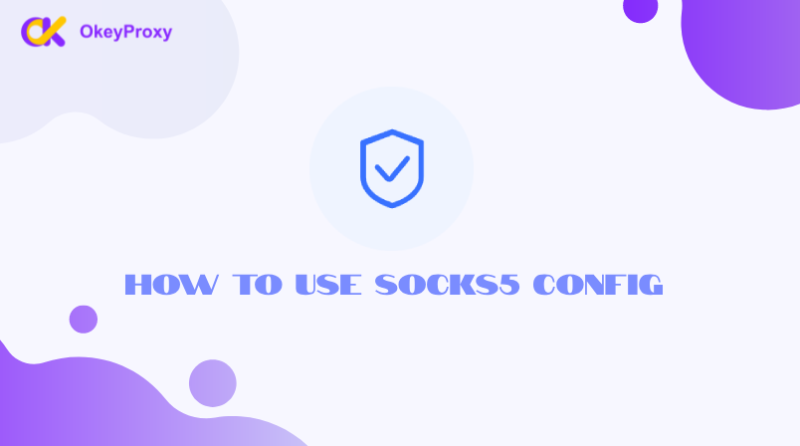Everyone is connected in this Internet world, which has also increased the risk of security, online safety, and other problems while surfing online. The Browser proxy takes your online web surfing to the next level! Install a browser proxy on your browser for increased security as well as better privacy. Besides, getting better access to blocked content.
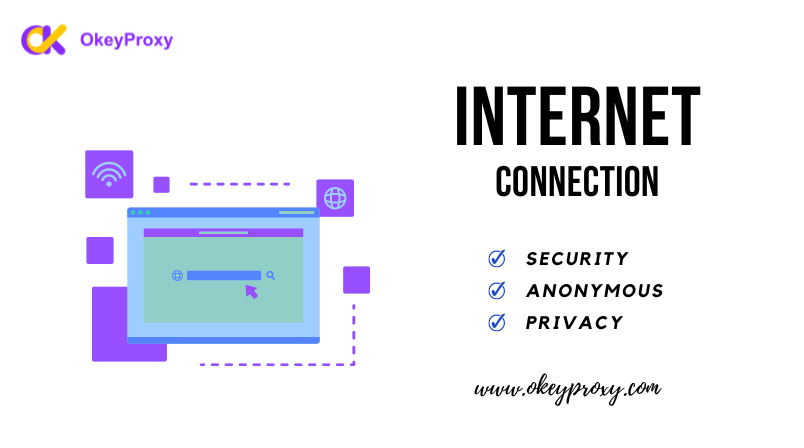
Read this tutorial to find out what’s the differences between a browser proxy and a proxy browser, what is a browser proxy? Why do you use a proxy web browser? How to set a proxy in Chrome browser and how to disable browser proxy settings?
What Is A Browser Proxy: Browser-level Protection
A secure browser proxy acts as an intermediary between your browser and the Internet. Your web browsing data is transmitted directly from your browser to the internet through a secure tunnel, masking your IP address so the web server you are contacting cannot know exactly where you are in the world. This makes it harder to track and locate.
Why Do You Use Browser Proxies?
If you want to enhance your web browsing capabilities, you need a browser proxy. This type of web proxy is one of the most common and widely used today, which is one of the reasons why anyone can take full advantage of security and privacy directly from their desktop or mobile browser. This means whether you use Microsoft Edge, Google Chrome, Mozilla Firefox, etc., you can seamlessly use browser proxies at work, at home, or on the go.
What’s more convenient, unlike other browser extensions, using a browser proxy requires no software to run it. You simply purchase a proxy and enter its configuration information into your web browser. Once it’s set up and synced, you’re ready to go. From then on, you can browse the web as freely as ever – only now, you can do so anonymously and with greater security and freedom. It is that simple.
Meanwhile, proxies can cache data, leading to faster loading times for frequently visited websites to improve online performance.
Different Types of Browser Proxies
1. HTTP Proxy: This type of proxy is used specifically for web traffic. It can interpret the data it handles, allowing it to perform operations like caching or blocking certain types of content.
2. SOCKS Proxy: Unlike HTTP proxies, SOCKS proxies are not restricted to web traffic. They can handle any type of network traffic, making them more versatile but also slower due to their lack of data interpretation.
3. SSL Proxy: SSL proxies or HTTPS proxies can manage traffic for secure websites. They can decrypt the connection to read and modify the data, and then encrypt it again before sending it to the client. This type of proxy is useful for tasks like blocking specific content on secure websites.
In-depth Look at Proxy Use Cases
Web Scraping: Web scraping is a technique used to extract large amounts of data from websites. Proxies are used in web scraping to prevent IP banning. With a pool of proxies, a scraper can rotate IP addresses and make it appear like the requests are coming from different users.
Ad Verification: Ad verification companies use proxies to check advertisers’ landing pages anonymously. They can also use proxies to verify ads in different geographical locations, ensuring that the ads are not misrepresented or geographically restricted.
SEO Monitoring: SEO tools use proxies to retrieve search engine result pages. By using proxies, they can send more requests to search engines without the risk of being blocked. They can also customize their location to get location-specific results.
Competitor Analysis: Companies use proxies to anonymously monitor their competitors’ websites. This allows them to gather intelligence without alerting their competitors.
How To Set A Browser Proxy Server?
Although all browsers are similar to some extent, they all have unique settings that you have to familiarize yourself with before proceeding.
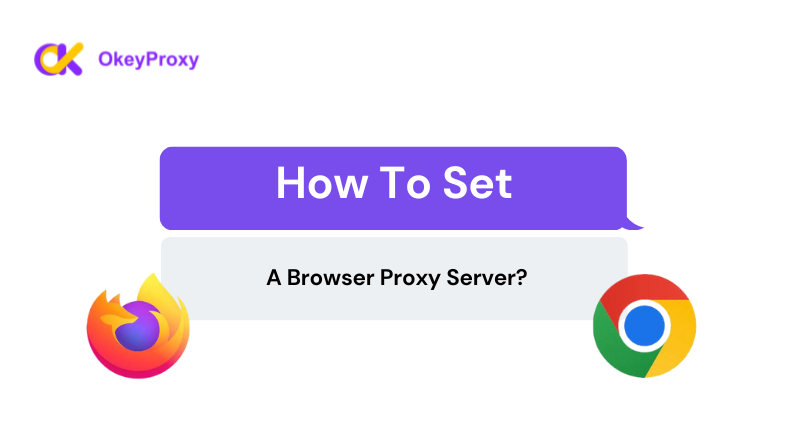
1. Add a browser proxy to Chrome
To take full advantage of Chrome by setting up a proxy, you need to open the Customize and Control Google Chrome button and select Settings. Scroll down and click “Advanced.” Under the “System” heading, select “Open your computer’s proxy settings.”

The Settings lists all the options for setting up your browser’s proxy server on one page, as shown in this screenshot.
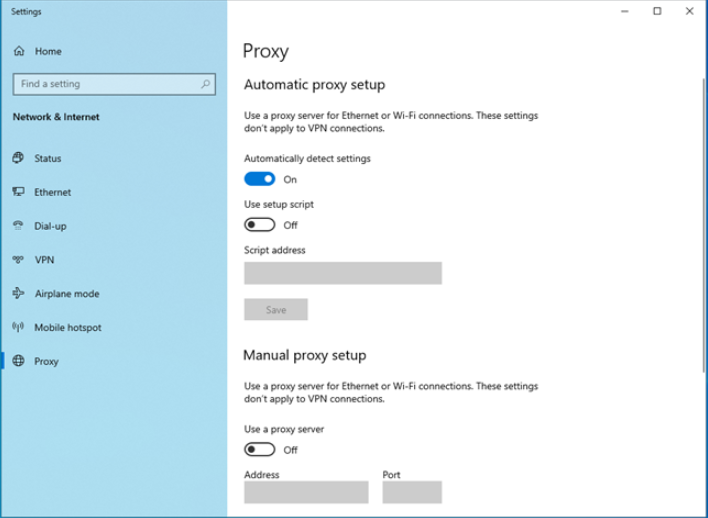
Enable the “Use proxy server” option and specify the address and port as shown below.
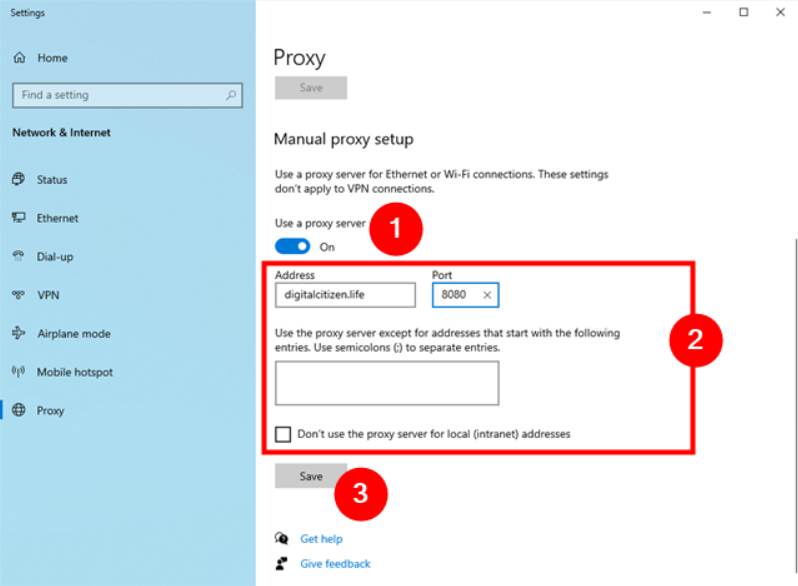
Press “Save” to apply your settings.
2. Add a browser proxy to Firefox.
Go to General settings. Scroll down to the “Network Settings” section at the bottom of this tab. Then, click or tap the Settings button.
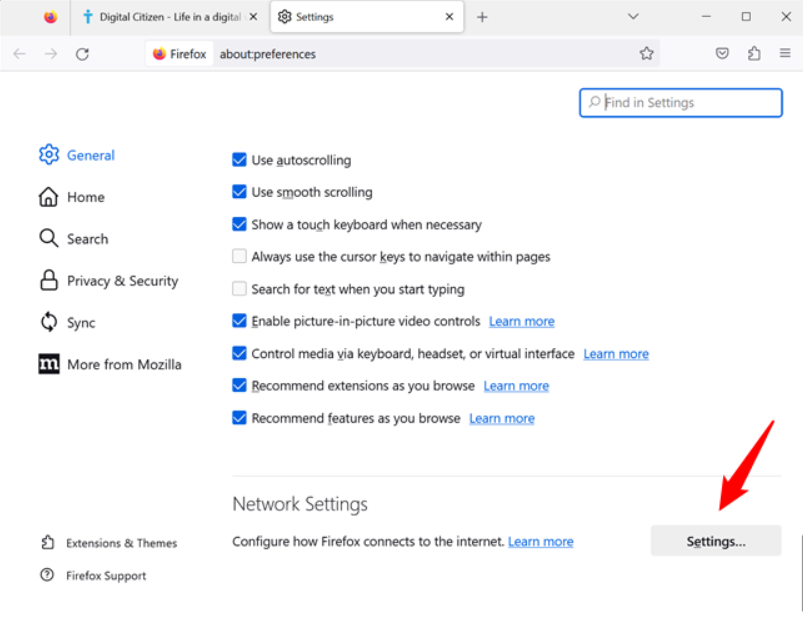
From the Connection Settings popup, you can see proxy-related options.
Option 1: Set to “Use system proxy settings”.
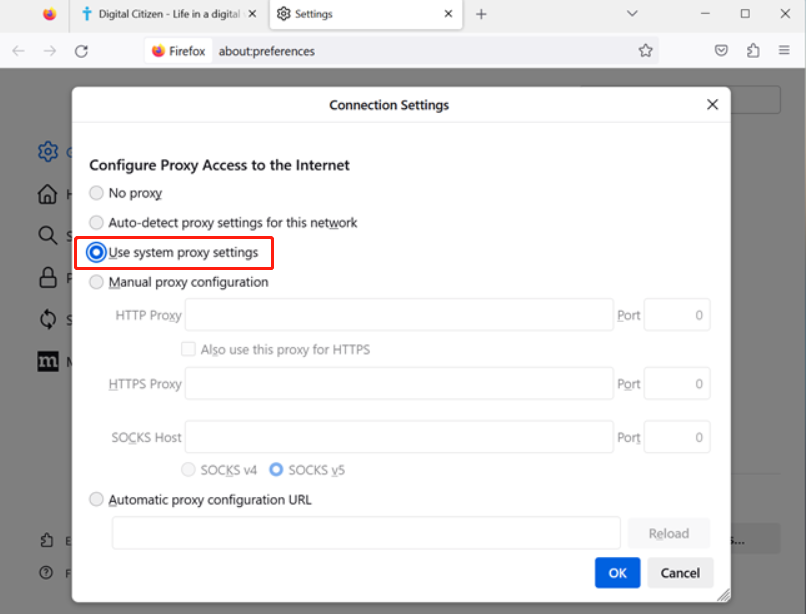
Option 2: Configure a separate browser proxy server for Firefox, you need to select Manual proxy configuration and enter the proxy details. It enables you to set various proxy servers and ports for different Internet protocols like HTTP, HTTPS, and SOCKS.
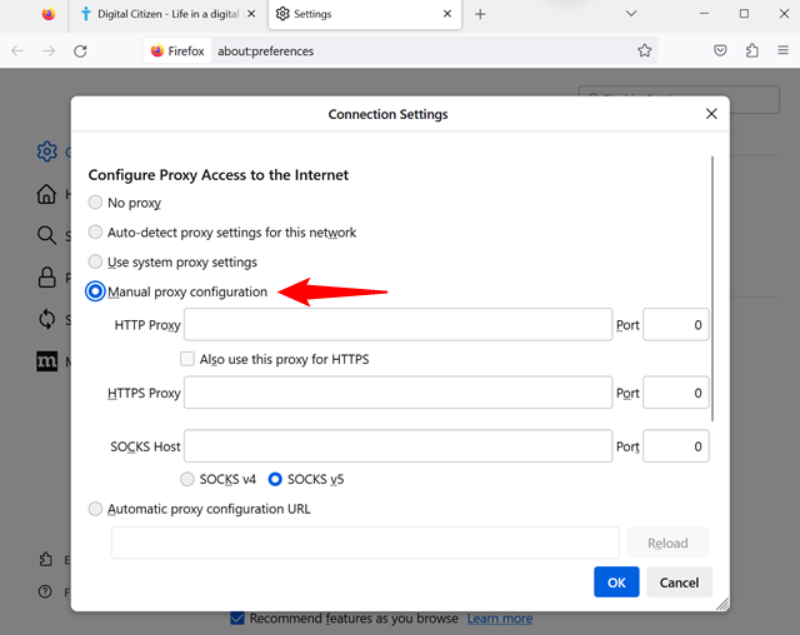
Option 3: You can also choose the “Automatic proxy configuration URL” option and insert the address into the PAC file. Then Firefox will download a file that contains all the information needed to use the configured proxy server.
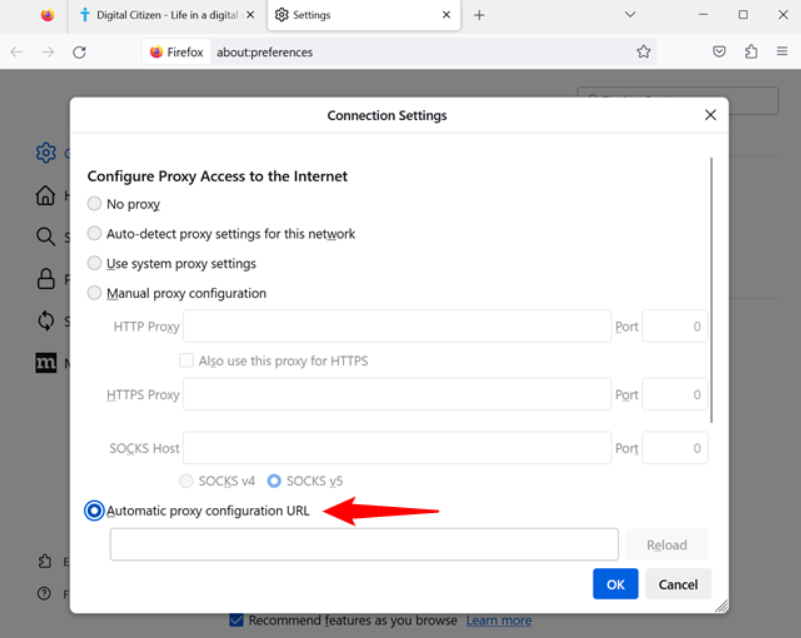
How To Disable Browser Proxy Settings?
It is quite simple to disable the proxy. After completing the proxy-related tasks, go to the Proxies tab and make sure that all protocols in the list are turned off (unchecked), click OK to confirm, and then you have removed the proxy. Please make sure to disable the proxy to avoid interfering with other applications. Simply delete all previously set proxy and firewall settings (undo changes).
Browser Proxy VS Proxy Browser
A browser proxy and a proxy browser, though their names sound similar, serve different but related purposes in the realm of online privacy and security.
1. Browser Proxy
When a user sends a request to access a website, instead of going directly to the site, the request is first routed through the proxy server. The proxy server then forwards the request to the internet, obtains the response, and relays it back to the user’s browser. This entire process is seamless and invisible to the user.
The main purpose of a browser proxy is to hide your IP address from the websites you visit, thereby providing anonymity. It can also be used to bypass geo-restrictions and access content that is blocked in your region.
2. Proxy Browser
A proxy browser, on the other hand, is a web browser with built-in proxy settings. This means that every time you use the browser to access the internet, your traffic is automatically routed through a proxy server. This provides an extra layer of privacy and security, as the proxy server will hide your real IP address and protect your data from potential threats.
Examples of proxy browsers include the Tor Browser, which routes your traffic through the Tor network to anonymize it, and the Epic Privacy Browser, which includes a built-in proxy that can be turned on or off as needed.
In essence, both browser proxies and proxy browsers serve to protect your privacy and enhance your security online. However, a proxy browser provides a more user-friendly experience, as the proxy settings are integrated into the browser itself.
Are Proxy Browsers Helpful?
1. You are anonymous.
A proxy server means no one can get your information without your permission. This helps keep your privacy intact and allows you to visit sites you wouldn’t normally visit or avoid visiting for any reason.
2. Help detect security threats.
Proxy servers pre-scan incoming files and links to your computer, allowing you to avoid any harmful threats or risks. It keeps your internet devices safe and gives you peace of mind with a secure internet connection.
3. Control what is sent to your internet devices.
A proxy browser allows you to control the type of content your internet device receives. Filters can be set and if certain web pages do not meet the set requirements, they will be blocked or stopped from being displayed to the user.
This improves the quality of content displayed to the user, which means that the user can determine the quality of the content, helping to achieve a better online experience.
4. Get better internet speed.
Proxy servers cache information. This means that the proxy server saves a copy of the websites you open and deletes old cookies. If you open the same website again, the server will search for and open the most recently saved copy. Therefore, only one request will be sent to the website, which will save bandwidth and increase speed.
All these little things can have a big impact on your overall internet surfing experience.
Conclusion
As we conclude, a browser proxy is a powerful tool with numerous benefits that can significantly enhance your online experience. Premium proxies like OkeyProxy offer higher levels of reliability, speed, and security than free proxies, ensuring your online activity remains private and protected. With the right knowledge and application, browser proxies can be an invaluable tool for you.

